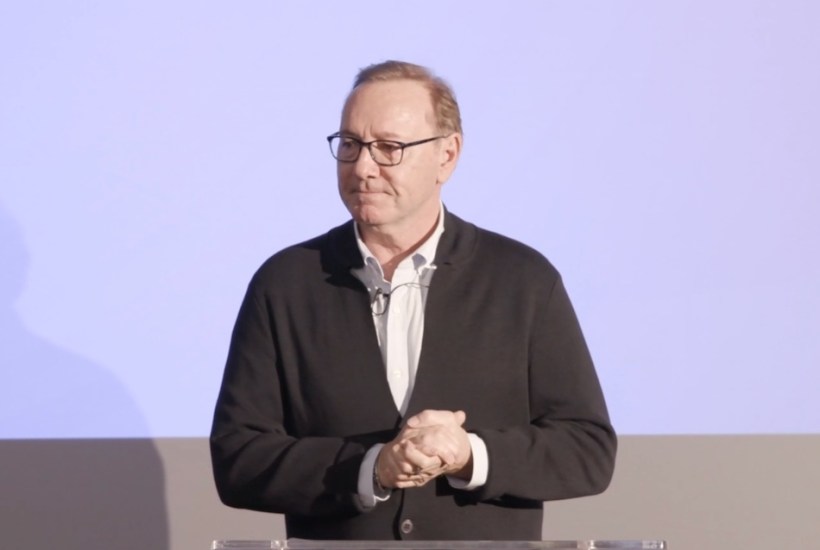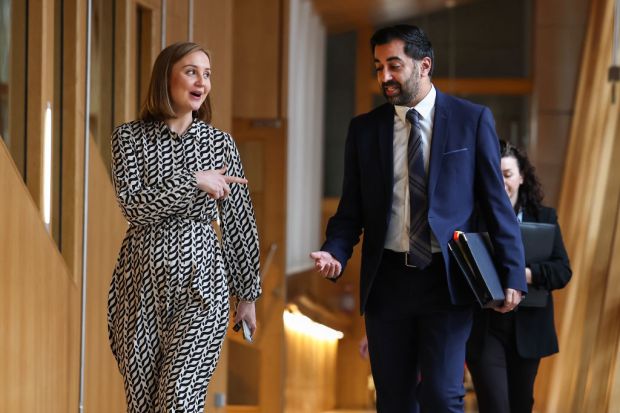The following is an edited excerpt from Douglas Murray’s lecture at the Sheldonian Theatre earlier tonight, in honour of Sir Roger Scruton. It features the actor Kevin Spacey reciting a scene from William Shakespeare’s Timon of Athens.
By the last year of his life Roger had finally been not just honoured in his own country but given a position by a Conservative government to advise on that most pressing of issues – how to try to build beautiful housing in a country desperately in need of housing and even more desperately in need of beautiful housing.
Roger was engaged in his researches when a young snake of a man came to interview him and misrepresented what he had said. The fact that the magazine in question had been one Roger had contributed a column to for many years did not make this pill any easier to swallow. Roger was accused – falsely – of almost every one of the modern heresies, including racism against the Chinese. It was a preposterous set of allegations, and I for one knew them to be so from the outset.
Yet the Conservative government of the day – led by that great lady of iron principle, Theresa May – sacked Sir Roger before they had seen any more than a couple of Tweets from the lying reporter. Conservative MPs and ministers called it a ‘no-brainer’ to fire Sir Roger and declared that Scruton was just so much dead weight on the party.
As some people here know, I fought a campaign to get Roger’s reputation back. In fact I think I dedicated every hour of every day for months to that campaign. I eventually got hold of a copy of the tape of the interview that the New Statesman refused to hand over. The quotes attributed to Roger were misrepresented. He was vindicated.
But I remember that even at that point of victory it felt like too little a victory. Roger called me immediately after I published the true account of what had happened and said to me, ‘So do you think I still have a career’. There have not been many times in my life when I have wanted to cry with frustration, but that was one of them.
I do not want to end on a bitter note. But I do want to end on a question. Can a society really survive, let alone do anything good or beautiful, if it is so willing to play these dirty, nasty games? Can any society seriously manage to do anything good if it is willing to throw away and discard people on mere hearsay? Can we get anywhere, let alone create anything, if we throw away our most talented figures with such ease? Can we honestly do anything of worth if people are kicking their feet in the shallows while trying to drown everyone engaged in anything of import in these puddles?
It is not a straightforward question, but it is one which we would all do well to think on. Of course like all great questions, it is one that people have thought on before.
I would like to say two things in closing. The first is that I learned a lesson during the period I defended Sir Roger and it is a lesson I should like to pass on. Especially to the younger members of the audience here tonight.
Always stand up for your friends. Especially when they are right. There is every reason to do so. Many of them are obvious, but one perhaps is not. It is this: it might be the best or only chance you get to show them how much they mean to you. If you do not seize this opportunity when it comes you will save the truth of your feelings for their funeral or obituaries. Then it is not much use to anyone. But if you defend a friend while they are alive you might just give them the slightest intimation of how much you value them and love them – how much they mean to you and to others too.
But I want to say one final thing. In an era of cancellation and defenestration we sometimes forget that we both cannot go on like this and that we have been here before. We know this because our greatest writers and artists have addressed this question in their own times. When Roger was going through his own battle with the shallows I often thought of Shakespeare’s rarely performed but great play Timon of Athens. Timon has the whole world before him. He is surrounded by friends and admirers. He is generous to all. Yet he falls on hard times and when he does absolutely everybody deserts him. He is left with nothing and nobody, and risks being filled with despair and rage. It does not help that he is shadowed by the cynical philosopher Apemantus, who has warned him that just such a desertion might occur.
I adore this scene and should like, in closing, to read it. But I am not a professional actor. So I would like to invite someone to the stage who is. The former Cameron Mackintosh professor of contemporary theatre at this university, one of the greatest actors of his generation, and somebody I am very proud to call a friend, Kevin Spacey.
Watch Kevin Spacey’s full performance here:
Got something to add? Join the discussion and comment below.
Get 10 issues for just $10
Subscribe to The Spectator Australia today for the next 10 magazine issues, plus full online access, for just $10.





















Comments
Don't miss out
Join the conversation with other Spectator Australia readers. Subscribe to leave a comment.
SUBSCRIBEAlready a subscriber? Log in